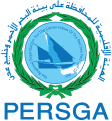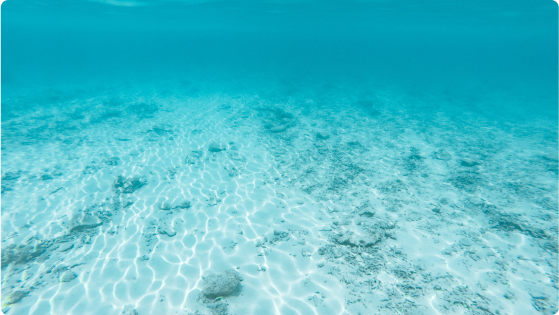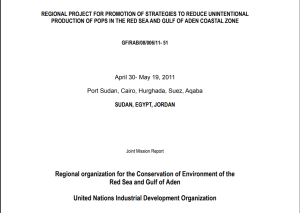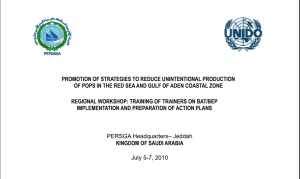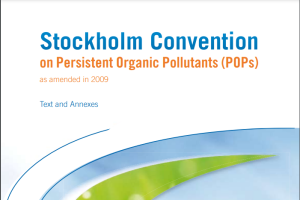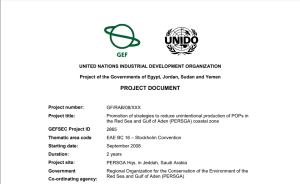The coastal zone of the Red Sea and Gulf of Aden has been witnessing a rapid economic and tourism growth in the last three decades. This is expected to continue in the future. Several coastal investment projects are still in planning in Egypt, Jordan, Saudi Arabia, Sudan and Yemen, mainly in the petroleum and petrochemical industries. This is not to mention the change in the style of life of the new generations by planning new modern cities at the coastal zone. Rapid industrialization will create high pollution rate and hotspots. As a result the use of raw materials, chemicals and energy will increase as well.
More
What makes POPs so dangerous is that they are easily transportable and globally pervasive, and that they pose serious health risks to all living organisms. POPs bio-accumulate in the fatty deposits of animals and plants and get passed on down the food-chain. They have been linked to alterations in the functioning of hormone systems in fish, wildlife and have been linked to a range of health concerns in humans as well, including cancer, immune-toxicity, thyroid and liver malfunction, nervous system damage, reproductive complications, hormonal disruptions, behavioural problems, allergies, birth defects, and developmental disorders The Stockholm Convention on Persistent Organic Pollutants entered into force in 2004 and serves as the primary global, legally-binding, mechanism that calls for international action against the introduction of POPs into the environment. It was signed in Stockholm in May 2001 and entered into force in May 2004.
POPs in the PERSGA Region
Rational of Regional Action
PERSGA has prepared the “Protocol for the Protection of the Marine Environment of the Red Sea and Gulf of Aden from Land-Base Sources (LBS) of Pollution”. The Protocol states that the contracting parties are:
“Committed to the precautionary principle and the ‘polluter pays principle’ and to the use of Environmental Impact Assessments together with the use of
the best available technologies and ideal environmental practices, including clean technology production”; “Determined to take the necessary measures in
a framework of close cooperation among themselves, to protect the Red Sea and Gulf of Aden from Land-Based sources of pollution”
Article 5, states that the contracting parties shall prevent pollution from LBS, with particular emphasis on the gradual elimination of inputs of toxic, persistent, and bio-accumulating substances by implementation of work plans based on source control.
Article 19, deals with the “adoption of regional measures, work plans and programmes” to best combat pollution and, as such, PERSGA has been working to facilitate translating the written mandates of the protocol into on-the-ground actions.
Establishing a Regional Project
Four of the RSGA countries (Egypt, Jordan, Sudan and Yemen) have ratified Stockholm Convention and concluded in the NIP development process that the reduction or elimination of POPs is a respective national priority and that they are committed to take appropriate actions towards the
reduction of the releases of unintentionally produced persistent organic pollutants (UP-POPs). Due to the trans-boundary movement of POPs and the special nature of the coastal zone of the Red Sea and Gulf of Aden, it is of importance to take preventive measures to reduce the negative impact of industrial activities and human settlements on the environment of the coastal zone. These preventive measures can be more effective if they are undertaken in a coordinated manner at the regional level. It can be further improved if the regular collection and interpretation of environment related scientific data are also undertaken at the regional level, together with the development of harmonized legislations and interventions. The participating countries have therefore decided to integrate their collective efforts under the regional umbrella of PERSGA and take united actions in reducing UP-POPs releases from selected industrial sources. The four participating countries have agreed that close cooperation is needed to collectively implement the SC’s measures concerning introduction of best available techniques (BAT) and best environmental practices (BEP) for the coastal zone industries. The countries have further agreed that it could be possible that a larger impact on the environment and the coastal zone economy be attained if the cooperation is made at regional level rather than each country intervenes alone at the industries of its own coastal zone.
